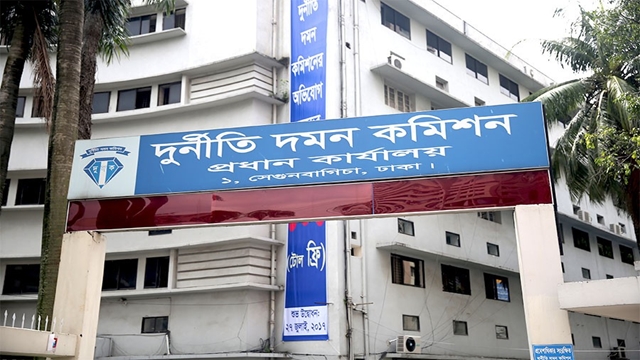FT Online
Published:2019-05-05 00:14:49 BdST
Conviction rate in graft cases drops in Jan-Mar
The conviction rate in graft cases filed by the Anti-Corruption Commission (ACC) dropped in the first three months of the current calendar year compared to that of the same period of 2018.
The conviction rate in the graft cases lodged by the anti-graft watchdog also fell last year after a steady rise in the previous three years.
The conviction rate dropped by 1.98 per cent to 59.42 per cent during the January-March period this year from 61.40 per cent during the same period of previous year, according to the ACC data.
The punishment rate came down to 60.64 per cent last year from 67.93 per cent in 2017. It was 54.20 per cent in 2016 and 37 per cent in 2015, according to the ACC sources.
Some 2,830 graft cases were under trial while 285 cases stayed by the High Court (HC) and 41 people were convicted in the first three months of this year.
Besides, 28 people were acquitted and 69 cases disposed of during the same period, the ACC data showed.
On the other hand, 2,778 cases were under trial, 329 cases stayed by the HC and 35 people were convicted in the first three months of previous year.
Apart from this, 22 people were acquitted and 57 cases settled during the same time.
Accused in 98 cases were acquitted in 2018 while accused in 76 cases in 2017. The number of such cases was 98 in 2016 and 119 in 2015.
The number of graft cases under trial stood at 2,832 last year. Of them, 338 were filed with the now-defunct Bureau of Anti-Corruption (BAC).
A senior ACC official said the ACC is trying to increase the rate of conviction through a group of expert lawyers and bring more corrupt people to justice across the country.
However, he didn't cite the reasons behind a decrease in the conviction rate.
The anti-graft watchdog is making efforts to produce witnesses before courts in time, he said, adding that the ACC must take action against influential people if it receives specific complaints with substantial evidence and documents.
ACC's senior prosecutor Advocate Khurshid Alam Khan said the conviction rate completely depends on the judiciary.
"The conviction rate drops as the defence lawyer wants to take more time for delaying the trial proceedings."
That's why trial courts could not deliver more judgments, he told the FE. He laid emphasis on enhancing expertise and efficiency of ACC prosecutors and investigators to this end.
Earlier in February this year, ACC Chairman Iqbal Mahmood said relentless efforts were being made to enhance the efficiency of investigation officers and prosecution with giving them necessary training at home and abroad as it is closely interrelated with the trial proceedings.
Talking to the FE, Dr Iftekharuzzaman, executive director of Transparency International Bangladesh (TIB), said the fall in the conviction rate is not a 'reliable indicator of ACC's delivery of mandate' because the conviction rate doesn't depend on the ACC alone.
"It also depends on judicial integrity as well as political factors, either direct or indirect."
Nevertheless, he said, ACC is expected to try to keep up the momentum in terms of the conviction rate by ensuring excellence of their own prosecution capacity and demonstrating courage and commitment to treat all corruption cases on equal footing irrespective of identity and status of perpetrators, political, social or financial.
The ACC should be selective in lodging only such cases about which they are confident of the due process and credibility of evidence, he added.
Dr Iftekhar also said the ACC should give top priority to "big fish" irrespective of whether they are connected with powers or not.
A few successes in challenging impunity of high and mighty will be more important to gain public trust than conviction of many "small fries", he added.
Unauthorized use or reproduction of The Finance Today content for commercial purposes is strictly prohibited.


